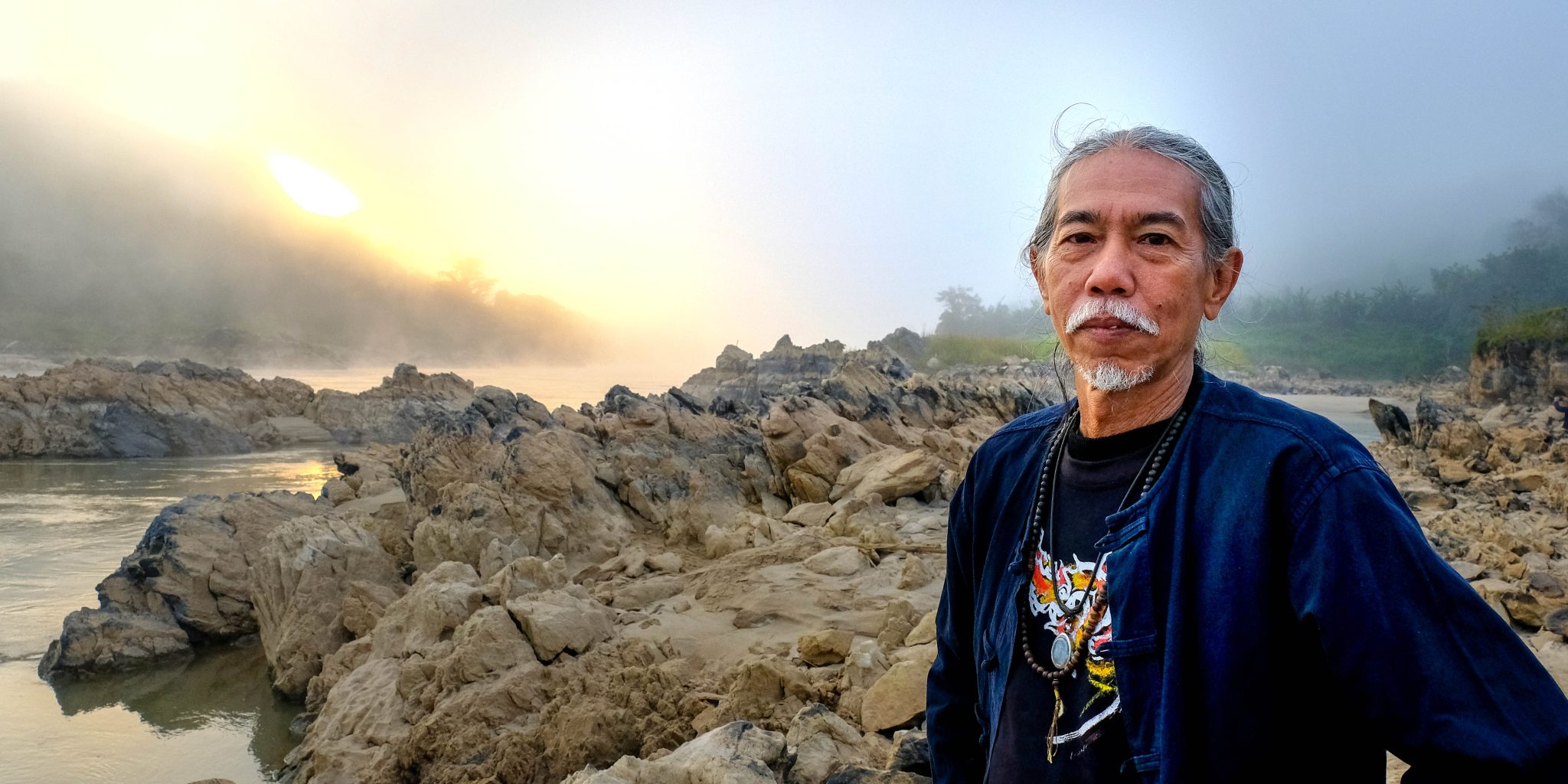In February 2020, Niwat Roykaew and the Mekong community’s advocacy resulted in the termination of the China-led Upper Mekong River rapids blasting project, which would have destroyed 248 miles of the Mekong to deepen navigation channels for Chinese cargo ships traveling downstream. Flowing 3,000 miles from the mountains of Tibet before draining to the South China Sea, the biodiversity-rich Mekong River’s fisheries, tributaries, wetlands, and floodplains are a vital lifeline for more than 65 million people. This is the first time the Thai government has canceled a transboundary project because of the environmental destruction it would cause.
Meet Niwat Roykaew
Read in:
In February 2020, Niwat Roykaew and the Mekong community’s advocacy resulted in the termination of the China-led Upper Mekong River rapids blasting project, which would have destroyed 248 miles of the Mekong to deepen navigation channels for Chinese cargo ships traveling downstream. Flowing 3,000 miles from the mountains of Tibet before draining to the South China Sea, the biodiversity-rich Mekong River’s fisheries, tributaries, wetlands, and floodplains are a vital lifeline for more than 65 million people. This is the first time the Thai government has canceled a transboundary project because of the environmental destruction it would cause.
A Mighty and Beloved River
Flowing 3,000 miles through China, Vietnam, Laos, Thailand, and Cambodia, the Mekong River forms the heart and soul of mainland Southeast Asia, providing food, drinking water, and irrigation for more than 65 million people. The river is second only to the Amazon River in terms of freshwater biological diversity, and its annual flood-drought cycle creates essential conditions for major fish migrations. However, multiple dam projects across the region threaten the river’s delicate ecosystem.
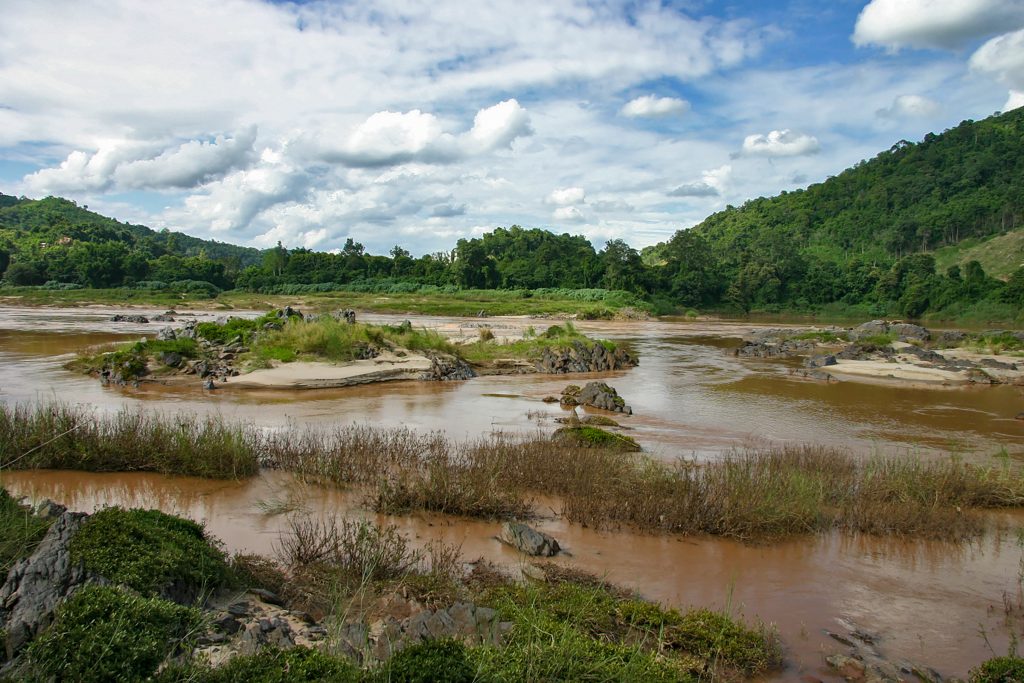
In the early 2000s, China announced joint plans with Thailand to blast rocky sections of the Mekong near the Thai-Laotian border to make way for 500-ton Chinese cargo ships. These ships travel downstream from China, through Laos, and on to Thailand. The plan for the Mekong blasting project (officially called the Lancang-Mekong Navigation Channel Improvement Project) proposed converting the river into a Panama Canal-like industrial navigation channel and destroying a 248-mile stretch of the Mekong near Chiang Kong. Locals saw it as transforming their river into a “giant highway.”
A Schoolteacher Turned River Protector
Niwat Roykaew, affectionately known as “Kru Thi” (teacher in Thai) is in his 60s and was born and raised in Chiang Kong, on the banks of the Mekong River. As a schoolteacher in remote locations on the Thai-Laotian border, he witnessed firsthand the environmental impacts of Mekong development projects on rural farmers. After retiring, in 1995 Kru Thi founded the Chiang Kong Conservation Group, a loose network of 30 Thai villages seeking to address environmental and social issues caused by large-scale development projects along the river. Because teachers command significant respect in rural Thailand, he is viewed as a champion for voiceless people.
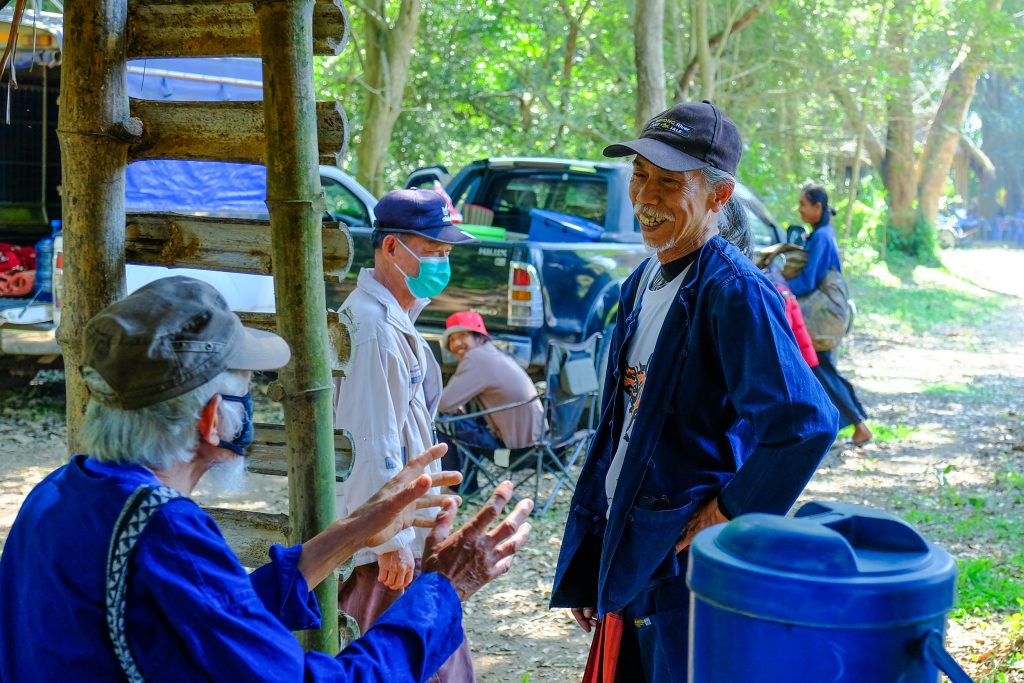
A Winning Approach
Upon learning of the Mekong rapids blasting project, Kru Thi began to organize against the project. He drew on his large network of civil society groups, local communities, NGOs, and media in order to gain the attention of the developers and government. He gave interviews and generated extensive media coverage, emphasizing biodiversity loss and ecosystem failure if the project were to continue.
Kru Thi led boat demonstrations on the Mekong to protest the blasting and he met with fishermen in both Thailand and Laos and encouraged villagers to sign a petition that was delivered to the Chinese embassy in Bangkok.
Kru Thi employed citizen science to identify 100 species of fish, including 16 found only in the rapids. He worked with academics and researchers to further document the biodiversity in the upper Mekong.
Kru Thi voiced his opposition to Thai government ministries and parliamentary committees with oversight over the project, eventually compelling state authorities to travel to Chiang Kong to meet with him and his colleagues. Following sustained local opposition, the Chinese developer agreed to meet with Kru Thi and locals to discuss the project’s implications.
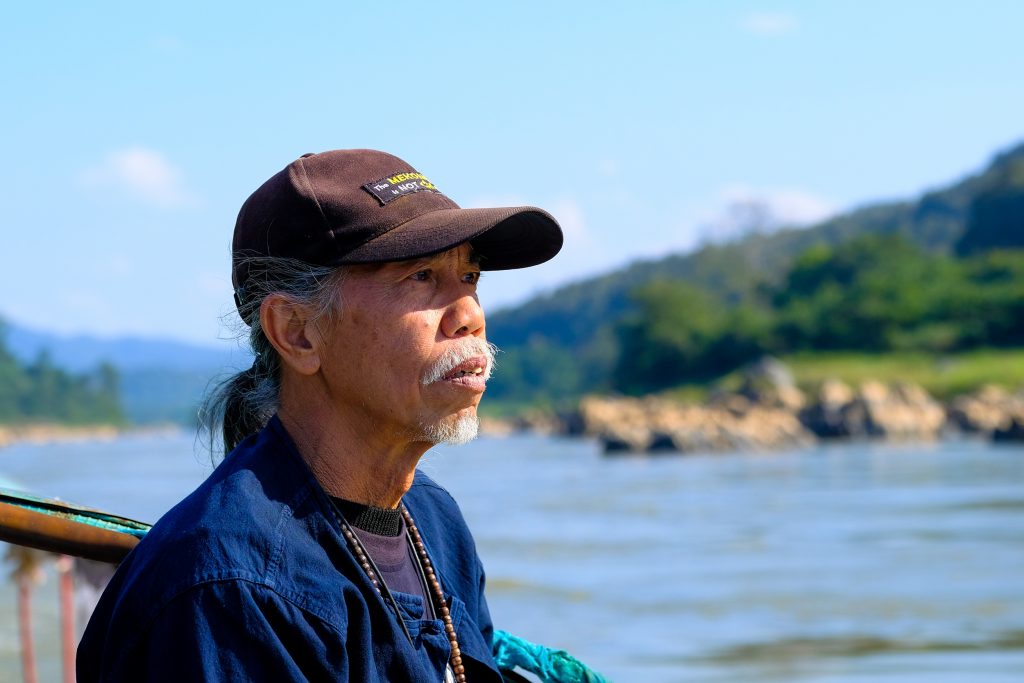
In December 2017, Thailand’s foreign minister announced that China had suspended the project. However, government consultation meetings continued, prolonging uncertainty for local communities. Meanwhile, even as the campaign continued, construction began on an upstream section of the river—and approximately 124 miles were blasted.
Kru Thi doubled down on his efforts, highlighting the project’s broader implications—the blasting would likely alter Thailand’s border with neighboring Laos, a boundary that is defined by the river itself. Faced with mounting controversy, the Thai government initially abandoned the project but revived it in late 2016.
Kru Thi and his colleagues did not relent. By February 2020, their sustained advocacy generated so much resistance from civil society, scientists, and academics that the government was compelled to formally abandon the Mekong rapids blasting project. The Thai government finally announced that it was canceling the project due to its potentially devastating environmental and social impacts.
The official cancellation of the Mekong rapids blasting project marks a rare, formal win in a region facing substantial pressure from development projects and is a testament to the collective power of Kru Thi’s campaign. By amplifying the voices of local people in articulating the Mekong’s environmental, social, and cultural value, he forced the Thai government to pay attention to civil society and increased its accountability to its citizens. Kru Thi continues to tirelessly advocate for the rights of the river and the people that depend on it. He is also working to build the next generation of river caretakers through youth outreach and programs.
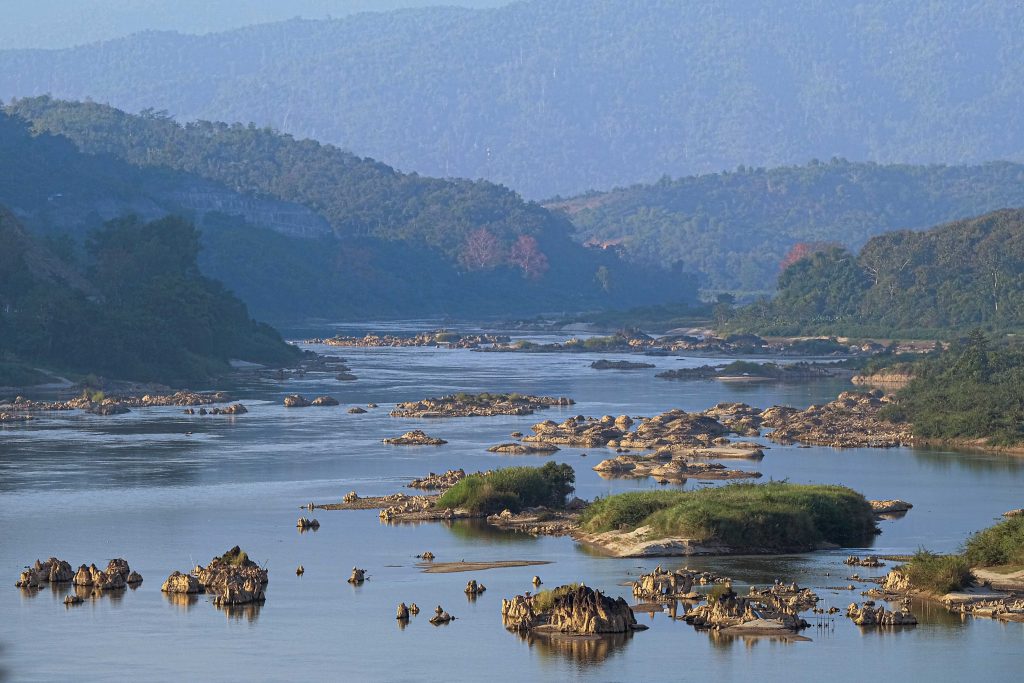
How You Can Help
Help Niwat’s efforts to protect the Mekong River and other critical waterways:
- Understand your role as a truly global citizen. Our consumption habits and individual choices affect others around the world.
- In his words: “We are all linked. There are no borders.”
- Follow the Mekong School on Facebook.
From the Goldman Blog
November 21, 2023
Wrapping up a Busy Fall at Asia-Pacific Climate Week
July 25, 2022
The Fight for Our Rivers
May 31, 2022
